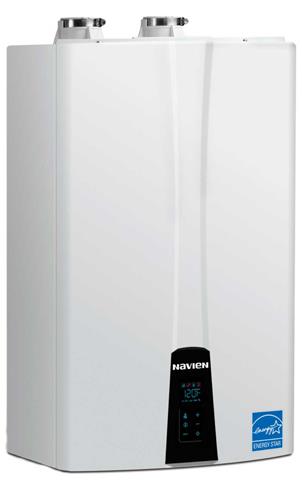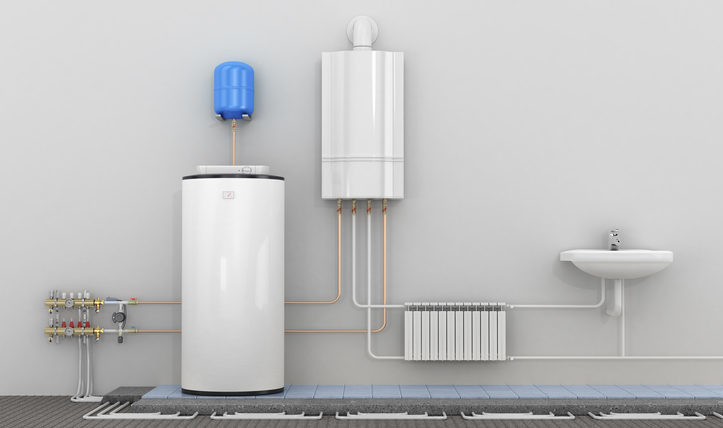Centering On Energy Savings To Space Efficiency: The Benefits Of Tankless Water Heaters
Centering On Energy Savings To Space Efficiency: The Benefits Of Tankless Water Heaters
Blog Article
Here in the next paragraphs you might get additional first-rate news around Six Benefits of a Tankless Hot Water Heater.

In a globe where comfort and effectiveness reign supreme, it's no surprise that home owners are regularly in search of smarter ways to manage their home's energy intake and comfort. One technology that has gradually gained popularity is the tankless hot water heater. However just what makes these systems stand out from the conventional tank-based designs a lot of us matured with? Let's dive in and check out the benefits of tankless hot water heater, aiding you choose if it's time to make the switch in your house.
Introduction
Picture this: you enter the shower after a long day, expecting a relaxing waterfall of hot water, just to be welcomed by icy droplets since the last person utilized all of it up. Sound familiar? Conventional hot water heater keep a fixed quantity of hot water, meaning you go to the grace of that storage tank's supply. Tankless systems, on the other hand, warm water on demand. No more going out mid-shower, no more fumbling with routines just to ensure hot water is available.
Comprehending Tankless Hot Water Heater
What Are Tankless Hot Water Heater?
Tankless hot water heater, sometimes known as on-demand or immediate water heaters, give hot water just as it's required. Rather than saving gallons of pre-heated water, these units kick into action the minute you turn on the tap. Water travels through a warmth exchanger, warming up in real-time, indicating you obtain a nonstop circulation of hot water without the need for a large container sitting idly by.
How Do They Vary from Standard Solutions?
Standard heating units hold a reservoir of warm water, utilizing energy to keep that storage tank at a constant temperature. Tankless devices get rid of the standing supply, reducing wasted energy and the large impact of a large cyndrical tube. Basically, you're upgrading from a "accumulation" mindset to a "made-to-order" method.
Usual Types of Tankless Systems
Tankless hot water heater typically can be found in 2 varieties: gas and electric. Gas designs have a tendency to supply greater circulation rates, suitable for bigger houses, while electrical designs commonly serve smaller homes and are generally simpler to install. In addition, some systems are made for point-of-use (serving one fixture) while others can handle the entire home's warm water requirements.
Secret Advantages of Tankless Water Heaters
Power Efficiency and Cost Financial Savings
Say goodbye to heating up a titan container's well worth of water and keeping it toasty all day. Tankless heating systems decrease standby power losses, which can decrease utility costs. While the preliminary price may be greater, the long-lasting financial savings typically warrant the investment.
3. Space-Saving Style
If your home is short on storage space, eliminating the cumbersome container frees up important area. Tankless systems are portable and can often be installed on wall surfaces, stashed in edges, or installed in tight energy storage rooms without grabbing all of the whole room.
4. Longer Lifespan
A properly maintained tankless hot water heater can outlive its tank-based relative. Typical containers might last 10-15 years, while tankless designs can keep downing along for twenty years or more, making them a strong financial investment with time.
1. Countless Hot Water Supply
Ever had to arrange showers so every person obtains their reasonable share of hot water? With tankless, that becomes a distant memory. As long as the heating unit's flow capacity isn't exceeded, you can take back-to-back showers without becoming a popsicle.
5. Improved Water High Quality
Storing water in a tank can sometimes result in sediment buildup or a slightly "off" taste. With tankless systems, fresh water is warmed instantly, lowering the opportunities of debris buildup and potentially using cleaner-tasting water.
Factors to consider Prior To Changing
Though the advantages are compelling, it's smart to take into consideration a couple of aspects prior to completely committing.
Assessing Your Home's Water Usage Patterns
If your household simultaneously makes use of numerous components with high hot water demand, see to it the system's flow price satisfies your needs. Recognizing your usage patterns assists you select the right dimension and sort of tankless heating unit.
Maintenance and Care Tips
Tankless systems are reasonably low upkeep, yet they aren't set-it-and-forget-it home appliances.
Regular Cleaning and Descaling
Hard water minerals can accumulate in the heat exchanger, influencing efficiency. Routine descaling (often recommended every year) maintains the system performing at peak performance.
Annual Professional Examinations
A yearly checkup from a professional makes certain small concerns are caught early. They'll assess the unit's performance, try to find leakages, and assist maintain optimal efficiency.
Initial Financial Investment Costs
Tankless heating systems normally come with a greater ahead of time price. Between the device itself and potential installation modifications, the first price may give you sticker label shock. However remember to see it as a long-lasting financial investment.
Setup Needs
Relying on your home's framework, you could require additional electric capability or gas line upgrades. Guarantee you recognize the installation requirements and seek advice from an expert to avoid surprises.
Making Sure Correct Ventilation
For gas models, proper ventilation is important to securely get rid of exhaust gases. See to it airing vent systems are tidy and correctly installed to prevent any type of possible safety and security threats.
Contrasting Different Brands and Versions
Not all tankless water heaters are created equal.
Researching Reputable Producers
Search for respectable brands with a history of generating top quality systems. A reputable manufacturer often gives much better customer support and longer warranties.
Setup: Do It Yourself or Specialist?
While some home owners relish dealing with tasks themselves, tankless installation could not be the most effective time to break out the tool kit.
Advantages and disadvantages of DIY Installment
A do it yourself set up might conserve cash, but it includes threats. Incorrect setup can bring about ineffectiveness or security worries. If you're handy and have experience, it may be viable-- yet wage care.
Reviewing Testimonials and User Feedback
User reviews and feedback from next-door neighbors or buddies who have gone tankless can offer valuable understandings. Sometimes, real-life experiences can be extra informing than marketing sales brochures.
When to Call a Professional Plumber
For many, calling a pro ensures whatever's done appropriately. A professional plumbing understands neighborhood codes, sizing needs, and venting specifications, minimizing the threat of incidents.
Making best use of Efficiency
You've invested in a tankless system-- currently optimize its performance.
Optimal Temperature Settings
Most people set their systems in between 120-140 F. Readjusting the temperature can enhance convenience and financial savings. Experiment to discover a sweet place that doesn't lose energy.
Pairing with Low-Flow Fixtures
Intend to stretch your system's capacities? Take into consideration setting up low-flow showerheads and taps. They lower water usage, allowing your tankless system to provide a constant stream of warm water without stressing.
Environmental Effect
Tankless water heaters straighten with greener living objectives.
Minimized Carbon Footprint
By utilizing less power and only home heating water as required, tankless systems can lower your home's carbon footprint, lowering your ecological impact.
Conserving Natural Resources
Much less energy usage and much less wasted warm water equate into less natural resources being utilized, an ecological win-win.
That Benefits Many from Tankless Heating systems?
The elegance of tankless heaters is that they can match a variety of homes.
Huge Families vs. Solitary Owners
Large households could like the countless hot water supply, while solitary residents value the power savings from not heating up an entire tank for just one person's morning shower.
Property Owners with Limited Space
If your home is short on square video, shedding the cumbersome storage tank frees up area for various other fundamentals-- or maybe simply a lot more elbow room.
Eco-Conscious Customers
Going tankless aligns with environmentally friendly worths, ensuring you're not wasting power or resources.
Future Fads in Tankless Water Heaters
The globe of home appliances is ever-evolving, and tankless hot water heater are no exemption.
Developments in Technology
R&D is frequently improving warm exchangers, making devices more effective and resilient. Future versions may be also quieter, a lot more small, and much better fit for differing environments.
Smart Home Combination
Envision adjusting your hot water heater's temperature through an application or receiving maintenance informs on your phone. As clever home technology breakthroughs, we'll see more connection and convenience.
Verdict
Choosing a tankless hot water heater is more than simply updating your home's hot water system; it's buying lasting comfort, energy efficiency, and a greener way of life. By considering your family's water usage, being mindful of installment needs, and devoting to regular upkeep, you can enjoy a stable stream of hot water without the luggage of a large tank. As modern technology evolves, you can look forward to even smarter, more effective tankless solutions that not just make your life less complicated however additionally benefit the earth.
Why You Should Consider a Tankless Water Heater for Your Home
Energy Efficiency and Cost Savings
Tankless water heaters, also known as on-demand water heaters, heat water only when needed. This means they don't waste energy keeping a tank of water hot constantly. This efficiency translates into substantial cost savings on your monthly energy bills.
Endless Hot Water Supply
One of the significant advantages of tankless water heaters is their ability to provide a continuous supply of hot water. Traditional tank water heaters have a limited capacity and can run out of hot water, especially during peak usage times. In contrast, tankless water heaters can provide an endless stream of hot water, making them ideal for larger families or homes with high water usage.
Space-Saving Design
Tankless water heaters are compact and take up significantly less space compared to traditional tank heaters. They can be installed on walls, under cabinets, or even outside, freeing up valuable space in your home. This makes tankless water heaters a great option for smaller homes or properties with limited space for a traditional water heater.
Longer Lifespan and Lower Maintenance
Tankless water heaters typically have a longer lifespan compared to traditional tank heaters. They can last up to 20 years or more with proper maintenance. Additionally, tankless systems are designed with replaceable parts, which can extend their lifespan further and reduce long-term maintenance costs.
Environmentally Friendly
Reducing energy consumption not only saves you money but also benefits the environment. Tankless water heaters contribute to a smaller carbon footprint by using less energy to heat water. Their energy efficiency and ability to minimize standby heat loss make them an eco-friendly choice for environmentally conscious homeowners.
Customized Temperature Control
Tankless water heaters offer precise temperature control, allowing you to set the desired temperature to meet your specific needs. This level of customization ensures you always have water at the perfect temperature for your comfort and usage requirements.
https://beantownservices.com/blog/consider-tankless-water-heater-for-your-home

We hope you liked our part about Why You Should Consider a Tankless Water Heater. Thanks a lot for taking time to browse our content. Be sure to take the time to share this content if you enjoyed reading it. Thank you for your time invested reading it.
Schedule Service Report this page